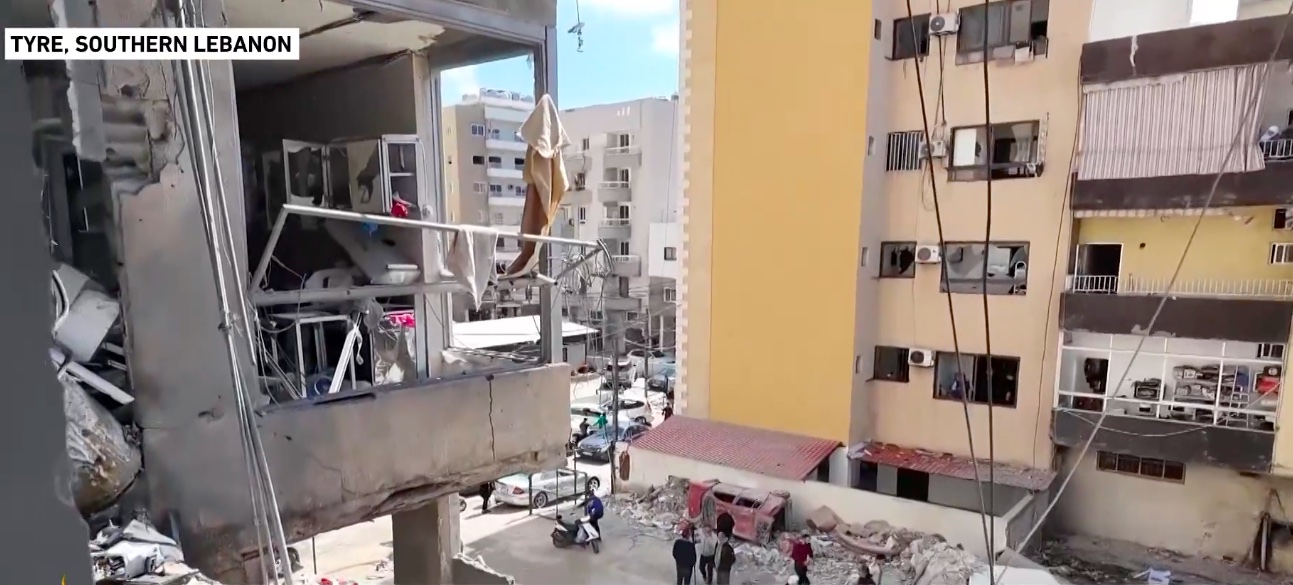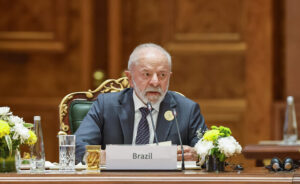
Published 28/03/2025 16:05 | Edited 28/03/2025 20:19
In the early hours of Friday, Israeli war planes hit the Hadath neighborhood, in the suburbs south of Beirut, marking the first bombing to the Lebanese capital since the ceasefire of 27 November. The target, according to the Israeli army, was an installation of the Hezbollah used to store drones. The action destroyed a residential building, damaged shops and left rubble in a densely populated area.
Tensions are increasing in Lebanon, with the ceasefire agreement signed on November 27 increasingly threatened. Residents reported surprise at the depth of the attack within Lebanese territory.
“It’s the first time since November that Israel attacks Beirut, and people didn’t expect that to happen,” a local correspondent reported. Despite the trauma, there was no widespread panic: “Lebanese are used to living on the tightrope,” says David Wood of the International Crisis Group.
November ceasefire has always been an illusion. Israel maintained occupations in southern Lebanon; Hezbollah, its military structure. Now, with Beirut on the target, the region faces a dilemma: accepting the “pax Israeli” imposed by bombs or diving into a new cycle of violence. “As long as there are militias and occupation, the war will only be asleep,” says Sami Nader, director of the Levante Institute for Strategic Affairs, to Aljazira.
Lebanese President denounces violation of ceasefire
Lebanon President Joseph Aoun stated that Israeli attacks on Beirut represent a continuous violation of the agreement by France and the US. In a post at X, he called on to the international community to contain Israel’s actions and ensure compliance with the agreement.
Aoun also classified the attacks as a “malicious attempt to drag Lebanon back to the cycle of violence”, stressing that the country will maintain their sovereignty.
In Paris, alongside Emmanuel Macron, he demanded international action: “The global community must prevent Israel from ignoring the UN resolutions.” Macron echoed: “These attacks make the Hezbollah game and undermine Lebanese sovereignty.”
Lebanese Prime Minister Najib Mikati ordered the army to “hold those responsible” for the rockets launched against Israel-a gesture seen as an attempt to calm the crisis. But with Hezbollah denying authorship, the investigation promises to be another chapter of mutual accusations.
Military presence
Hours earlier, Israel had issued forced evacuation alerts to the region, usual strategy before attacks. Hezbollah denies involvement in the rockets launched against northern Israel last Saturday, but the government of Benjamin Netanyahu justified the attack as a response to a “serious violation” of the truce.
Israel alleges military targets and reinforces threats
The Israeli army stated that the attack was directed to a Hezbollah drone storage installation. In response, Prime Minister Benjamin Netanyahu said Israel will continue to attack anywhere in Lebanon to contain threats and impose the ceasefire.
“The equation has changed – what happened before the attacks of October 7 will not be repeated,” said Netanyahu.
International reaction and concern about climbing the conflict
The US reaction, so far silent, is expected with tension. During the truce, Washington had guaranteed Lebanon that Beirut would not be targeted. Now American posture can define whether the conflict will climb. “They will repeat the ‘right to defense’ speech or contain Netanyahu to protect Lebanese allies?” Asks Rizk, a journalist in Beirut.
France, historically mediating, criticized Israeli action, but also charged Lebanon: Macron demanded that Hezbollah avoid “unilateral provocations” and that the Lebanese army assumes total control of the country, according to UN Resolution 1701. So far, however, the presence of the Shiite group on the border persists – as well as the Israeli occupation in five points of the Lebanese territory.
French President Emmanuel Macron has classified the attacks as “unacceptable” and warned that Israeli action can strengthen Hezbollah. He reiterated that all parties must fulfill their obligations and demanded the removal of the Israeli troops from southern Lebanon.
With the increasingly unstable situation, the fear of a new phase of the war between Israel and Hezbollah grows, threatening the fragile regional stability.
With information from Aljazira
Source: vermelho.org.br

